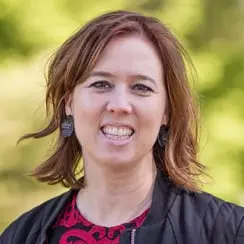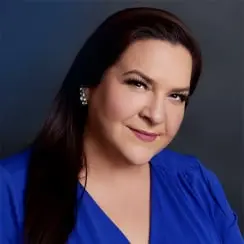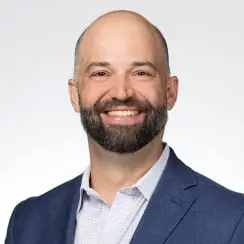 | 1 LU |
Navigating Tides of Change: From Drama Classroom to Black Box
 | 1 LU |
Call to Action:
Reflect on Design Principles: Take time to reflect on the design principles discussed during the session and how they can be applied to your own educational context. Consider how adopting student-centered approaches can enhance student outcomes in your teaching practice.
Engage in Collaborative Learning Communities: Seek out opportunities to engage with fellow educators and design practitioners to exchange ideas and best practices. Join online forums, attend workshops, or participate in professional development programs focused on designing for student outcomes.
Abstract: Explore the shift from traditional drama classrooms to contemporary black box theaters in this engaging session on the evolution of educational spaces. Discover how educational settings have adapted to changing needs, emphasizing spaces that align with evolving pedagogical and artistic practices. Gain insights through comparative analysis of past and present environments, exploring innovative design principles and strategies for problem-solving. Imagine future educational environments that cultivate creativity, collaboration, and student-centered learning. Join us on a journey through the past, present, and future, where we delve into the dynamic relationship between environment, pedagogy, and creativity.
Learning Objectives:

Anne is a Principal at BRW’s Dallas K12 studio, leading complex projects with a commitment to exceptional learning environments. A native Texan and daughter of educators, she values collaboration and diverse perspectives in design. An A4LE member since 2010, Anne received the Southern Region Cornerstone Award for her role in establishing the A4LE School Studio partnership with the University of Texas at Arlington. An Accredited Learning Environment Planner (ALEP), she actively promotes designs that support diverse learner needs and well-being.

Rachel is an advocate for generational equity through her educational design company, Harrah LLC. Formerly the Director of Theatre and Dance at Dallas ISD, she earned accolades including 2015 Dallas ISD Secondary Teacher of the Year and the 2020 Theatre Administrator of the Year. With a deep understanding of large, urban school districts, she aims to be a catalyst for positive change, fostering relationships and systems grounded in data and clear educational outcomes.

Dave earned his master’s degree studying a self-designed program blending Theater Design and Construction Project Management at UT Austin. As a Principal and Theatre Consultant (ASTC) for WJHW, he is fortunate enough to get to plan and design the most exciting theatres and rehearsal spaces for performing arts in the world. The combined knowledge of construction-based project management and practical theatrical production experience makes him an ideal resource for project collaboration.
Educational Visioning
Exhibits an understanding of best and next practices related to educational leadership, programming, teaching, learning, planning and facility design. Establishes credibility with educators, community members and design professionals while conceiving and leading a community-based visioning process. Demonstrates the ability to articulate the impact of learning environments on teaching and learning and uses that ability to facilitate a dialogue that uncovers the unique needs and long-range goals of an educational institution and its stakeholders – translating that into an actionable written/graphic program of requirements for the design practitioner.